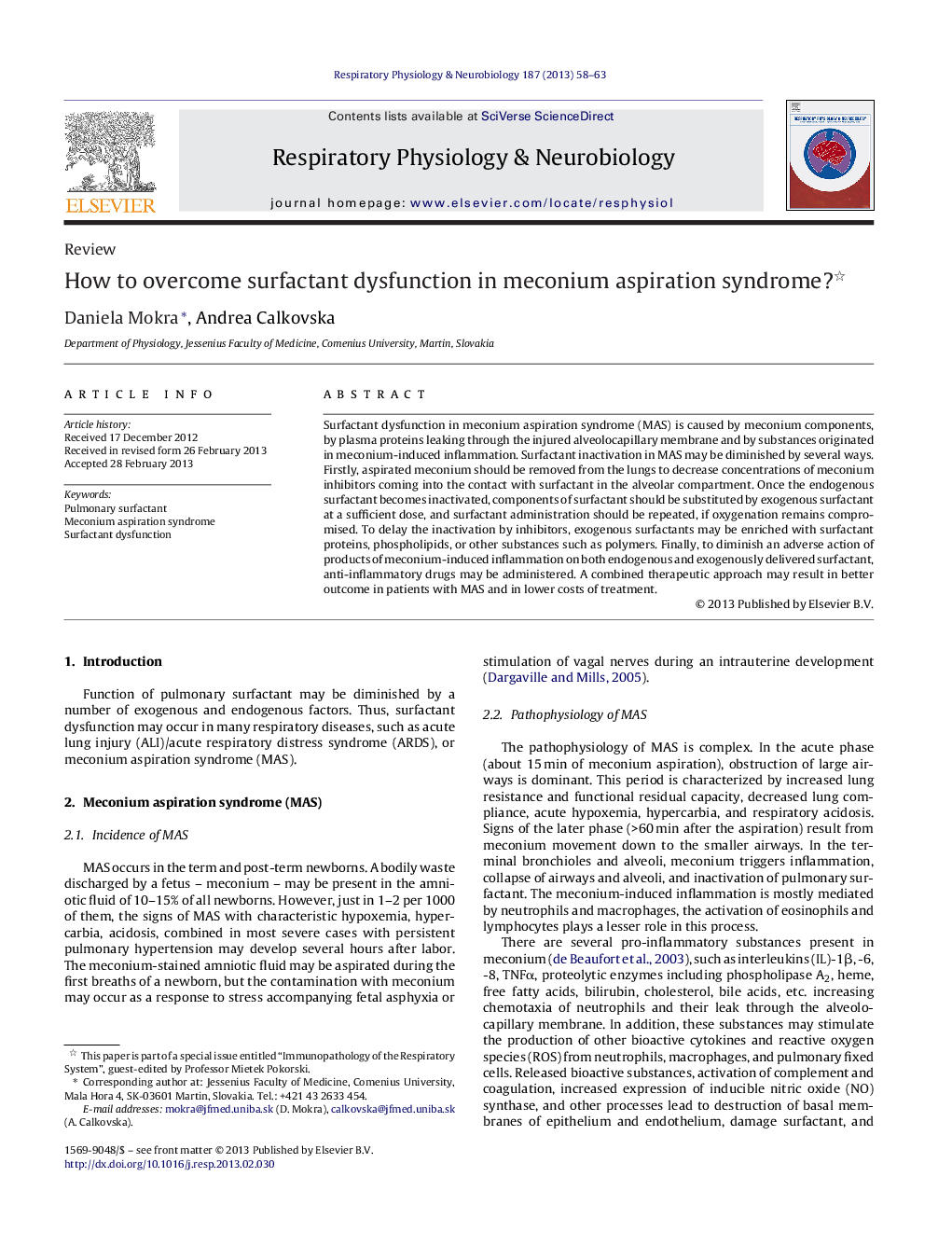| Article ID | Journal | Published Year | Pages | File Type |
|---|---|---|---|---|
| 2847174 | Respiratory Physiology & Neurobiology | 2013 | 6 Pages |
•Meconium is the earliest stools of a mammalian infant (or fetus).•Meconium-stained amniotic fluid occurs in about 10–15% of all pregnancies.•Surfactant dysfunction in meconium aspiration syndrome is caused by many factors.•Meconium-induced inflammation inactivates both endogenous and exogenous surfactant.•There are several ways to overcome surfactant inactivation.
Surfactant dysfunction in meconium aspiration syndrome (MAS) is caused by meconium components, by plasma proteins leaking through the injured alveolocapillary membrane and by substances originated in meconium-induced inflammation. Surfactant inactivation in MAS may be diminished by several ways. Firstly, aspirated meconium should be removed from the lungs to decrease concentrations of meconium inhibitors coming into the contact with surfactant in the alveolar compartment. Once the endogenous surfactant becomes inactivated, components of surfactant should be substituted by exogenous surfactant at a sufficient dose, and surfactant administration should be repeated, if oxygenation remains compromised. To delay the inactivation by inhibitors, exogenous surfactants may be enriched with surfactant proteins, phospholipids, or other substances such as polymers. Finally, to diminish an adverse action of products of meconium-induced inflammation on both endogenous and exogenously delivered surfactant, anti-inflammatory drugs may be administered. A combined therapeutic approach may result in better outcome in patients with MAS and in lower costs of treatment.
